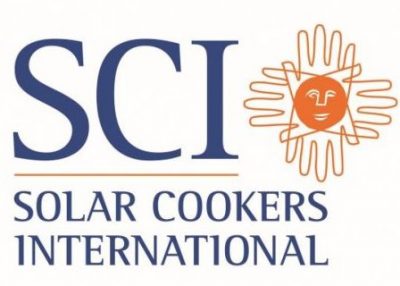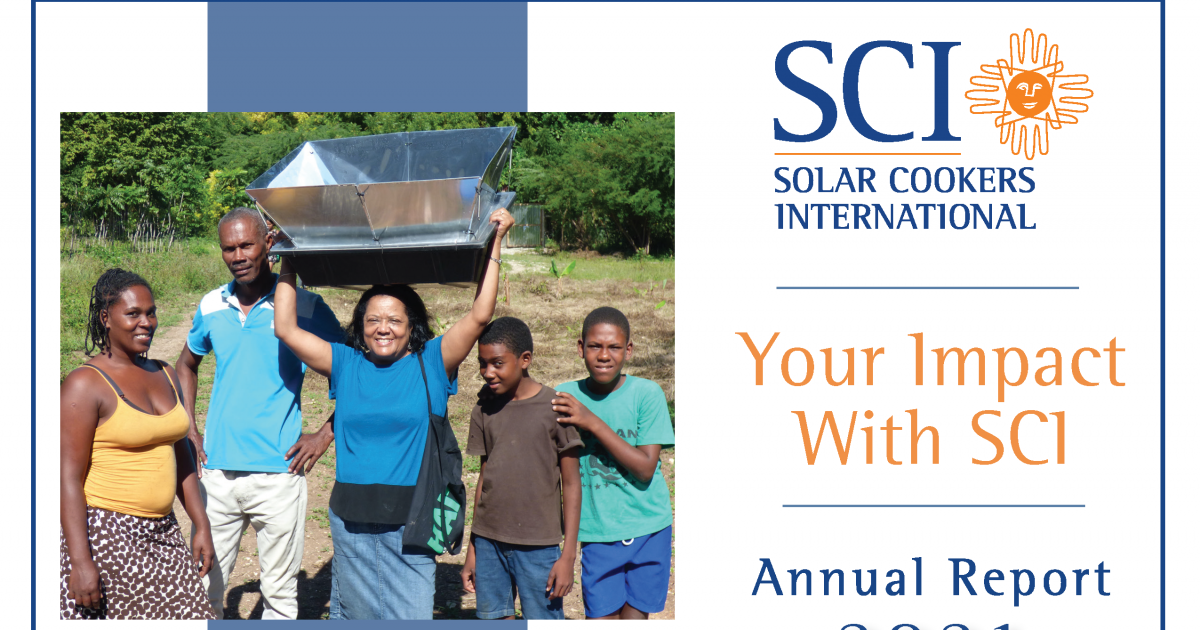Climate Solutions through Solar Cooking
Solar Cookers International improves human and environmental health by supporting the expansion of effective carbon-free solar cooking in world regions of greatest need. SCI leads through advocacy, research, and strengthening the capacity of the global solar cooking movement.








Overview of the project
Unlike most cooking methods, solar cookers produce no greenhouse gas emissions. Solar cooking is a proven thermal process that uses appropriate technology to convert incoming sunlight (light energy) directly to heat (thermal energy) without using complex/costly equipment or electronics. Solar thermal cookers are off-grid, and hence an ideal, appropriate solution that can be implemented relatively quickly with no large-scale infrastructure required.
Kakuma Refugee Camp, and all of Kenya, are in great need for solar cooking, and ready to use it. According to the World Health Organization, over 90% of the population in Kenya relies on polluting fuels to cook. Annually, over 15,000 in Kenya die prematurely due to household air pollution. Solar cooking alleviates these challenges by reducing cooking over open fires.
SCI is collaborating with the Kenyan NGO Ecomandate Foundation to increase solar cooking in Kakuma Refugee Camp, Kenya. 126 solar cookers have been constructed in the last three years in Kenya, using local materials, for residents’ use. SCI and Ecomandate Foundation implement, oversee, and conduct follow-up with local participants. The new solar cooks are learning how to cook their regional dishes, operate and maintain their solar cookers, and often become solar cooking advocates in their community.
This initiative has been growing year over year and is expected to continue growing.
SCI is increasing solar cooking in Kakuma Refugee Camp in Kenya to mitigate climate change.
implementation
Project still in progress
- 126 solar cookers have been constructed in Kenya, using local materials, for residents’ use
- Over 1,260 people have been positively impacted
- With an estimated 15+ year lifespan, these cookers can cook an estimated 1,701,000 meals
- Over 2,816 metric tons of carbon dioxide will be avoided over the lifetime of the solar cookers since solar cookers emit no greenhouse gas emissions.
Solar cooking is effectively providing many results in Kakuma:
- Families are using free solar energy for cooking, water pasteurization, and experiencing no greenhouse gas emissions
- People are breathing cleaner air, and drinking safer water
- Local people are being employed to construct solar cookers for local use
- Families are saving resources otherwise spent on fuel
- Available time is increasing for school and work by eliminating the need to collect firewood
- Community resilience is increasing through this sustainable technology
- Biodiversity is increasing by avoiding the felling of trees to be used as fuel for cooking
- The number of respiratory infections and smoke-related illnesses are decreasing
Financial support to encourage the manufacture, and use of solar cookers in Kakuma Refugee Camp comes from multiple sources, including government, family foundations and other donors, NGOs, partnerships, and more.
organisation
Solar Cookers International (SCI) is a non-profit organization with over 30 years of experience improving human, and environmental health by supporting the expansion of effective carbon-free solar cooking in world regions of greatest need.
SCI works to address the challenge of approximately 3 billion people worldwide cooking over open fires through advocacy, research, and strengthening the capacity of the global solar cooking movement.
SCI networks with over 500 collaborators in over 140 countries to increase adoption of solar cooking and share best practices.
in collaboration
SCI works with Ecomandate Foundation, a registered community-based organization in Kenya with solar cooker expertise and experience, to implement the ongoing solar cooking project in Kakuma Refugee Camp. SCI and Ecomandate Foundation has an ongoing working relationship with close and frequent communication regarding all facets of project development and implementation.
- SCI emphasizes and encourages best practices in project development and project monitoring and evaluation.
- Ecomandate Foundation brings hands-on, local experience and they are part of the community, know local customs and practices, and speak the local languages.




